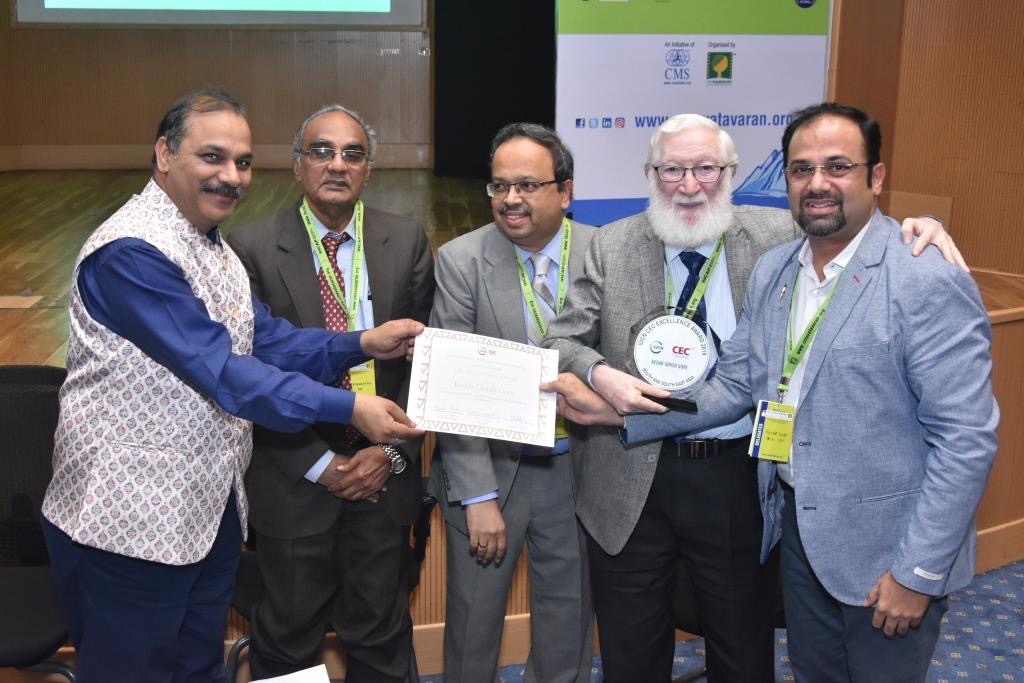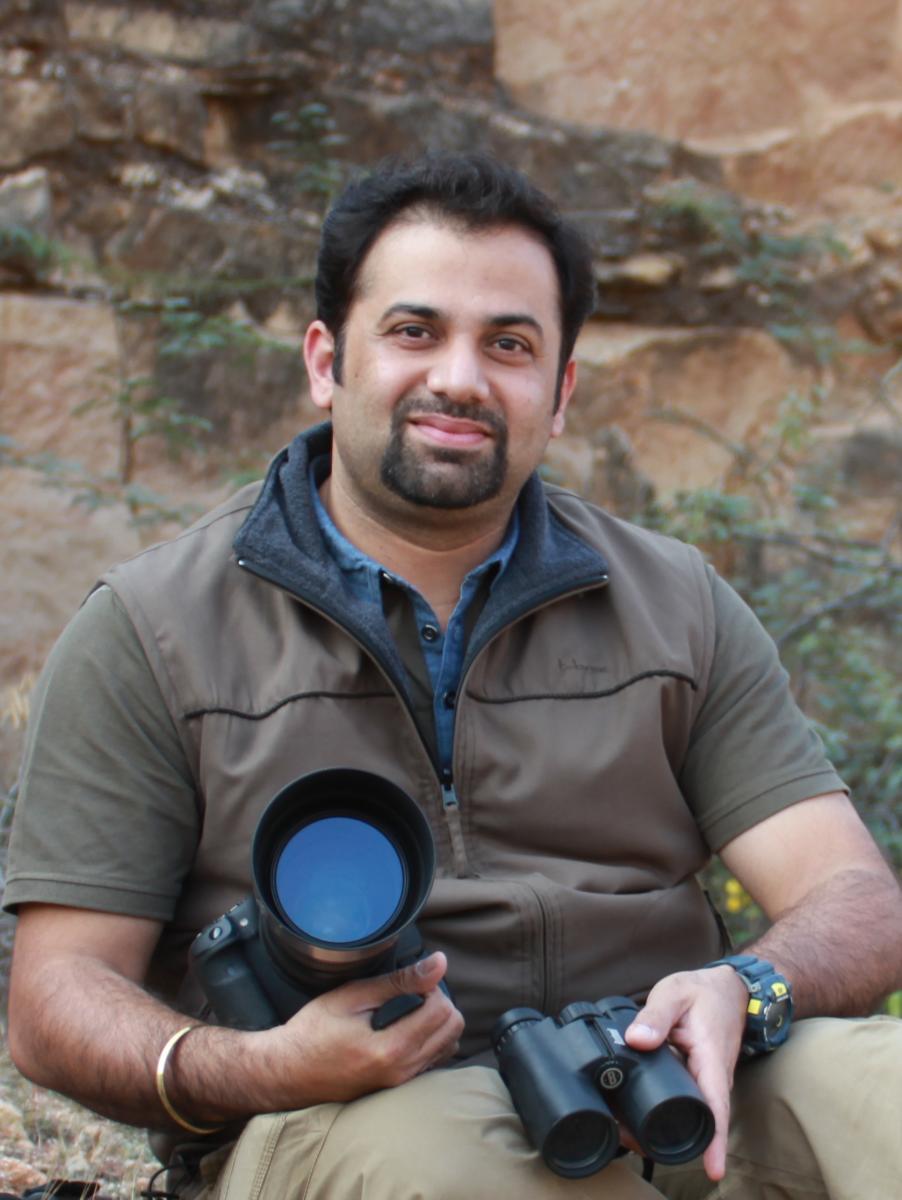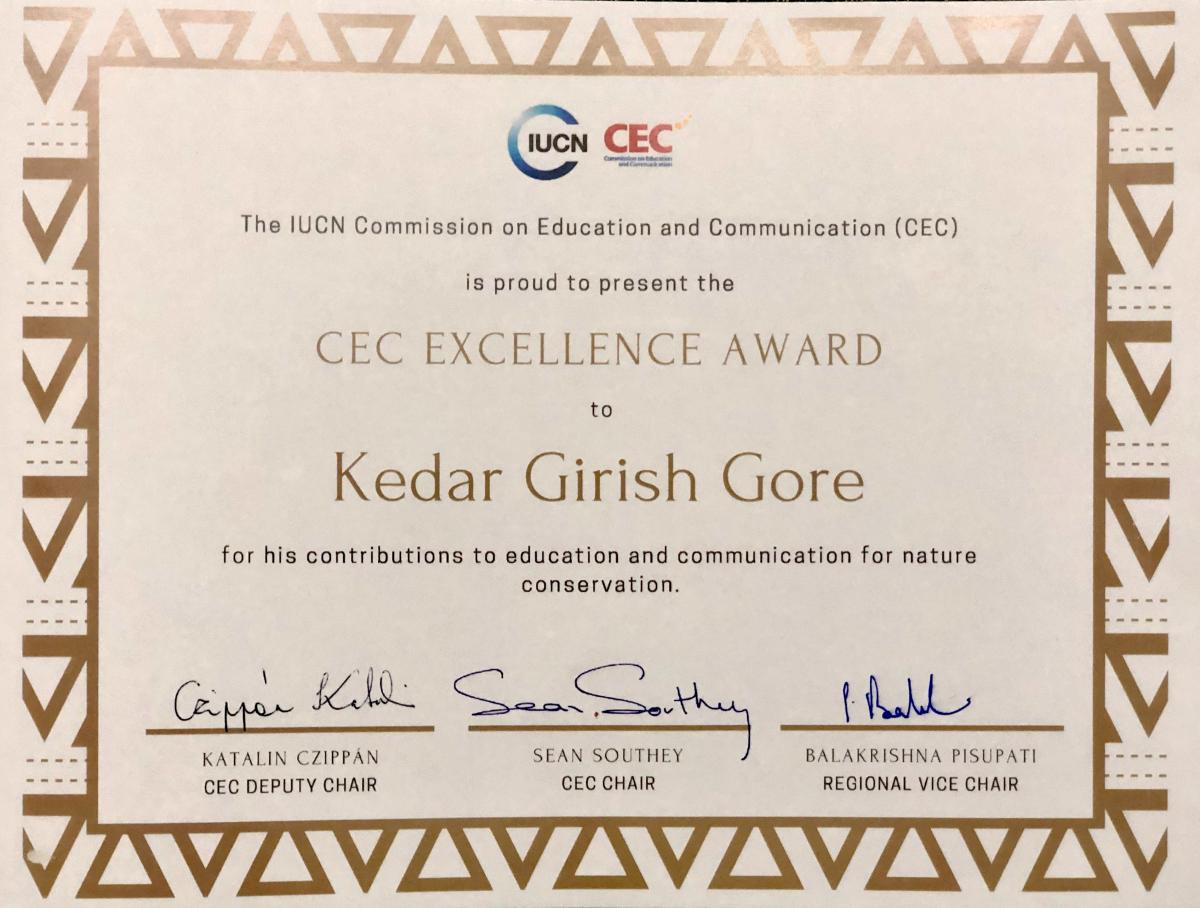Longstanding CEC member won the Award in South and Southeastern Asia
Kedar Gore is passionate about conservation photography, has been actively raising conservation issues through his articles, photographs, nature trails, camps and talks for nature lovers
Kedar, throughout his long stint with WWF India, was involved in several conservation campaigns and awareness programmes, especially the Nature Clubs of India movement that was very close to his heart. He also worked with Vasant J. Sheth Memorial Foundation and TERI. Kedar has received the NUFFIC Fellowship of The Netherlands Government in 2009 and 2012 and is a former Fellow of the International Visitor Leadership Program 2010 of the US Department of State. He is Member of IUCN WCPA and SSC Bustard Specialist Group since 2013.
Balakrishna Pisupati, Regional Vice Chair for South and Southeastern Asia:
Congratulations, Mr. Kedar G Gore for being the winner of the first CEC Award for Excellence in South and Southeast Asia region.
How did you become involved in the areas of education and communication related to conservation action?
Kedar Gore:
I am humbled to receive the first IUCN CEC Excellence Award for South and Southeast Asia. Thank you IUCN CEC for this honour!
I have been involved in the field of conservation education formally since November 1996, when I joined WWF-India, and informally since my school and college days as a nature explorer. As a student, I always dreamt of being in the field of wildlife conservation as I trekked through the wilderness of India, especially the Sanjay Gandhi National Park in Mumbai. Various nature trails into this extraordinary wilderness of the Western Ghats transformed my life and helped me nurture the thought of dedicating the rest of my life in protecting nature and its wild denizens. After I completed my formal education, I had the opportunity to work with WWF-India and my passion became my profession.
What do you see as the emerging challenges in education and communication related to conservation, both in India and abroad?
Conservation education is the first step towards conservation. It is actually imperative. It forms a base of several fundamentals that we are taught in school and should continue through university education and practised in the work place. Conservation education is not only making people aware about the natural world and its interaction with the larger environment but also sensitising them enough to become defenders of nature and environment in a true sense. It is not just information dissemination but must lead to attitudinal and behavioural changes make sure that people become conscious citizens who would raise their voices and stand up against any form of destruction of nature and environment. Conservation education is a process that should start as a hobby and culminate into a lifelong mission to conserve nature and protect the environment, irrespective of your field of work.
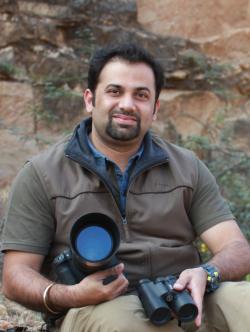 %3Cp%3EKedar%20Gore%20profile%3C%2Fp%3E%0A
Photo: Kedar Gore
%3Cp%3EKedar%20Gore%20profile%3C%2Fp%3E%0A
Photo: Kedar Gore
The world needs conservation practitioners as much as it needs economists and businessmen. Conservation education must be a ‘compulsory training’ for politicians and bureaucrats! Although, there is an increased awareness about the natural world today but not to the extent needed to create a ‘green force’ to counter the unsustainable and unrealistic developmental projects floated by the powers that be. People need to go beyond just ‘likes’ and ‘shares’ on social media and take up conservation issues with the sound knowledge gained. Conservation is a serious business and much more complex than we think it is. Every developmental project must be looked into from the point of view of its impacts on the conservation of ecosystems, natural resources, biodiversity and people.
How does the The Corbett Foundation address the challenges?
The Corbett Foundation (TCF) works with the principles of ‘holistic approach to conservation’ that includes conservation education to conservation action at the grassroots level. TCF works with the local communities sharing the ecosystems with other life forms and implements projects that facilitates for the prevention and mitigation in human wildlife conflict. TCF also believes that conservation is a collective responsibility, and our efforts to this end are more effective, mutually beneficial with long-lasting impact, when we combine our strengths and resources with various corporates, multinational companies, financial institutions, public sector units and International bodies with aligning values and philosophies, and create meaningful partnerships that pertain to a company’s specific area of focus for their Corporate Social Responsibility initiatives.
If you are to propose a couple of ideas for other IUCN CEC members from the SSEA region to strengthen CEC, what would those be?
CEC in general needs more interaction and connect between its members. Curbing international wildlife trade and concerted climate action are few of the many important issues that can be addressed within the SSEA region. Webinars could be cheaper ways to being in touch and discuss topics of conservation concern within the regions. This information exchange could help in better understanding of complex conservation issues that need to be highlighted at the local, national and international levels.
Working on regional conferences, exposure visits and small grants for ‘young environmentalists’ within SSEA would help students in thinking as environmentalists and conservationists, irrespective their education backgrounds. We need to integrate youth with multidimensional values on a common platform whereby they openly discuss conservation and economic issues in view of the challenges of climate change.
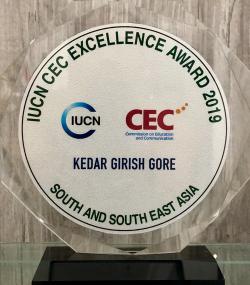 CEC Award winner: Kedar Gore
Photo: Kedar Gore
CEC Award winner: Kedar Gore
Photo: Kedar Gore
I would certainly like to see CEC Members being part of the country’s planning commissions, boards of directors of corporate sector, senior governmental officers who steer important policy decisions. CEC should reach out to every educational institution in the region and provide its expertise. Capacity building programmes on sustainability for journalists, engineers, architects and economists that influence public opinion and shape the country’s infrastructure and policies are of utmost importance. And last but not least, I would really like the younger generations to take up conservation field as a career as there are several options available. These days Corporate Social Responsibility (CSR) is an important activity undertaken by most companies. Conservation professionals can play an important role as CSR team members of the corporate sector to make a huge environmental and social impacts leading to conservation.
What are your expectations from the WCC 2020? [WCC 2021 -the editor]
IUCN WCC is one of the biggest gatherings of nature lovers, scientists, conservationists, community leaders, students and policy makers. WCC to be held in 2020 [2021] will be crucial in discussing the issues of climate change, the negative impacts of which every country is facing today – whether it be Australian bushfires, Amazon wild fires, Himalayan glaciers melting, coral reefs bleaching, etc. We need the world community to look at these issues (and several others) as a global problem that every country pledges to address and act accordingly. Species extinction, increasing illegal wildlife trade, habitat destruction and fragmentation and depletion of freshwater resources are all issues that need global consensus and solutions.
I really hope that the WCC ensures more affirmative action to address the above issues by the participating countries and its people.
Read more stories about the CEC Excellence Award winners!
